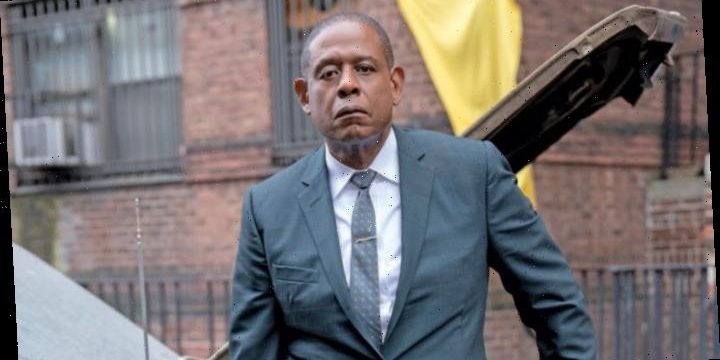An essential part of Epix’s fall slate is the dramatic “Godfather of Harlem,” starring Forest Whitaker (who also executive produces) as the real-life Bumpy Johnson. Taking place in the mid-1960s after Johnson got out of prison, the show mixes the familial challenges Johnson faced when returning home with the political issues of the time. It follows his rise to power as a drug kingpin in Harlem, and shines light on his pivotal relationships with Malcolm X (Nigel Thatch) and Adam Clayton Powell Jr. (Giancarlo Esposito).
“This is the education of Bumpy Johnson,” says co-creator Chris Brancato. “What interested us most was the idea that what we would do through the show was explore the collision of crime and civil rights in early-’60s Harlem with an eye towards contemporary themes like police brutality, drug addiction, gang warfare, the situation in the ghetto.”
Brancato and co-creator Paul Eckstein have a long history with the subject matter: Johnson helped send Eckstein’s grandmother to college, and more than a decade before “Godfather of Harlem” came to be, the duo collaborated on a feature film about Johnson, set in the 1930s. But for this time in Johnson’s life, and this version of the stylized gangster story, the men wanted to make sure to “be careful about making sure these characters are gray and morally on a path,” Eckstein says.
Centering the story on such emotionally complicated characters, who are leaders and well-loved but still flawed, mixes the aspirational with the cautionary tale.
For Epix, “Godfather of Harlem” speaks to the sensibility for which the brand wants to be known because its strategy is to offer “sophisticated narratives and elevated characters” that are a twist on traditional story devices, as well as to “make ourselves a destination for top talent, and part of doing that is to offer creative freedom and support to artists with a vision,” says network president Michael Wright.
“You’ve not seen this take on a gangster drama before,” he continues. “It’s explosive.”
When “Godfather of Harlem” premiered Sept. 29, it joined a slate that already included a drama dealing with themes of the mob (“Get Shorty,” which returned with its third season Oct. 6). But in telling a true story set in the African-American community, it creates a conversation around “the movement of these immigrant cultures climbing a ladder through crime and then over the course of time becoming part of the tapestry of what America is, gaining that cultural and social influence,” Brancato says.
“To just simply do a show where we’d say, ‘OK this is going to be black gangsters instead of white gangsters’ would yield the same old tropes that you deal with when you’re writing mob stuff. And we felt that that if we created this perspective of how crime and civil rights interrelate, we knew that then it would allow us to write crime scenes that were inflected by the civil-rights movement and civil-rights scenes that were inflected by crime,” he adds.
Additionally, because “Godfather of Harlem” is a period piece, “the show gives you a safe space to look through the prism of the past to see what’s happening today,” Whitaker notes.
“Martin Luther King Jr. talked about the promissory note for life, liberty and the pursuit of happiness, and it’s never really cashed in, it’s never really been done. The concept of what it means to be American is one thing, whether the nation itself is being able to live in equality and truth and prosperity, that’s another. And so this project is pointing out again those issues, and those issues exist right now. It’s important to know that these things really happened and people could stand up and protest and could stand up and fight. You might find yourself in a position where you’re marginalized, but there are still ways for you to be able to help society move forward.”
Source: Read Full Article
